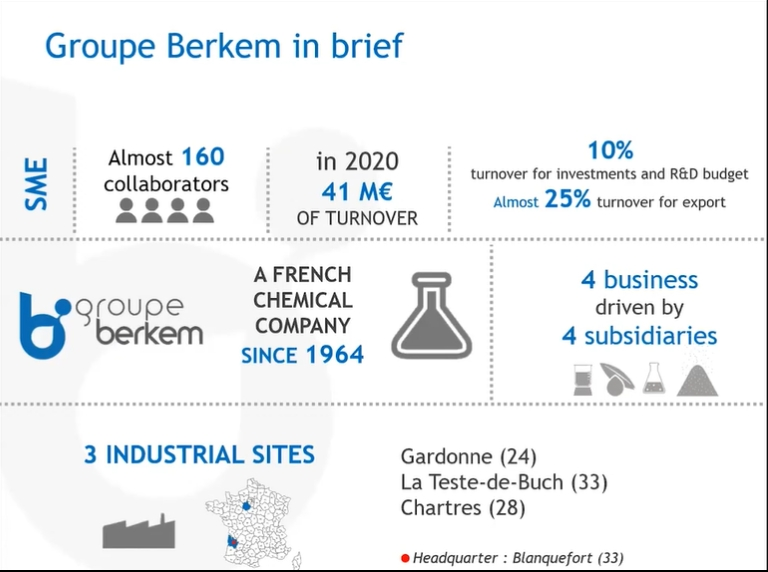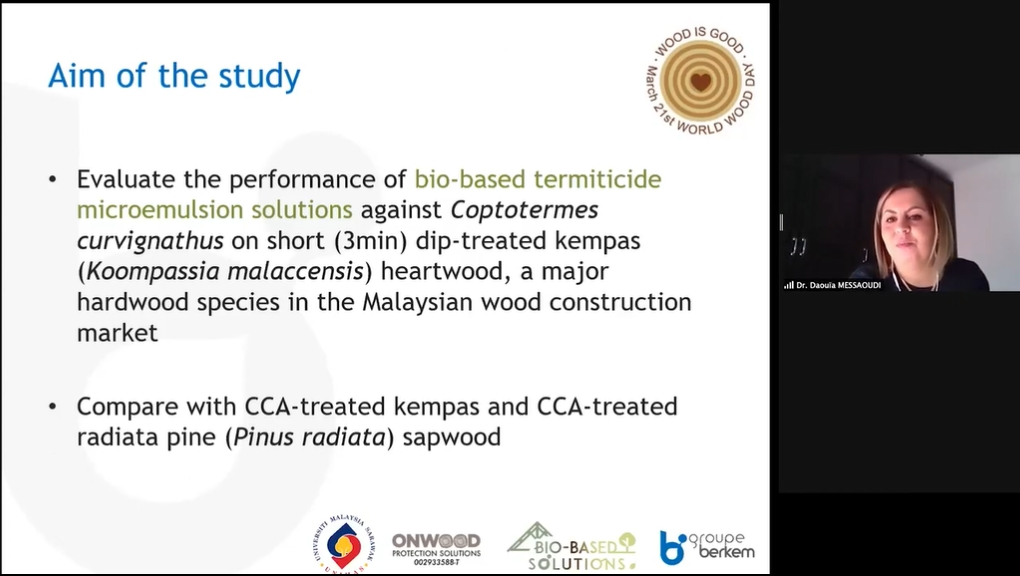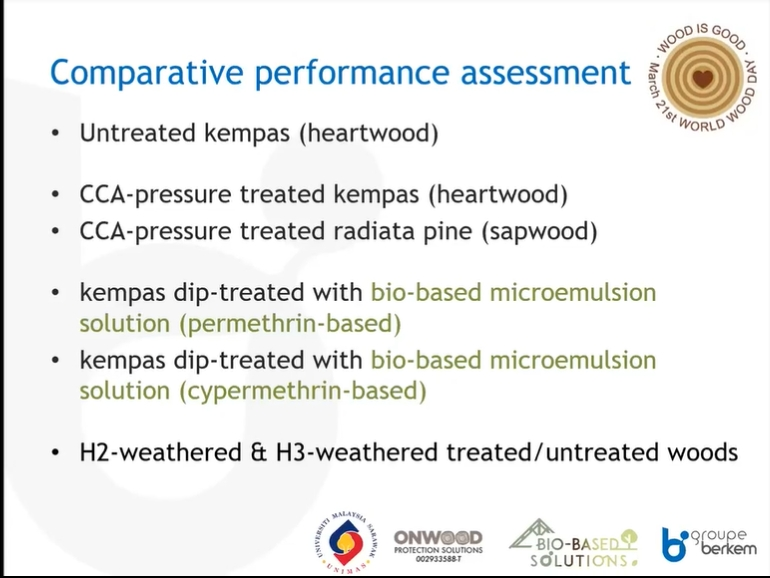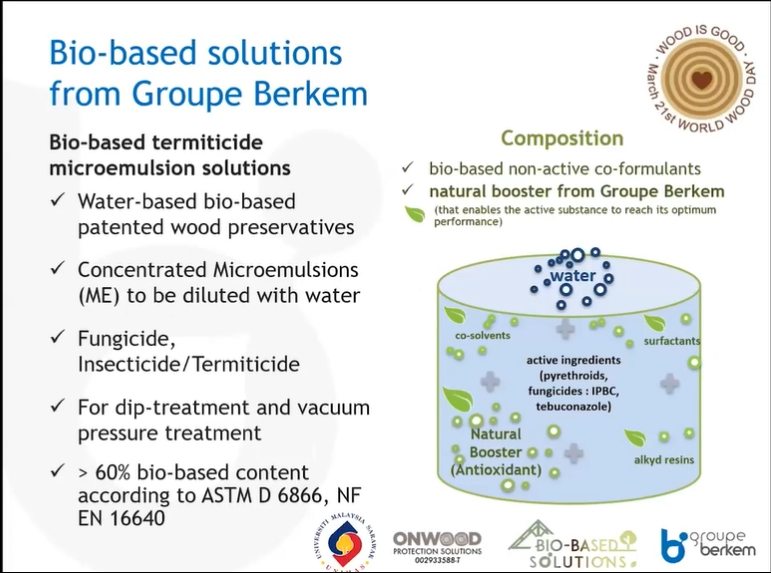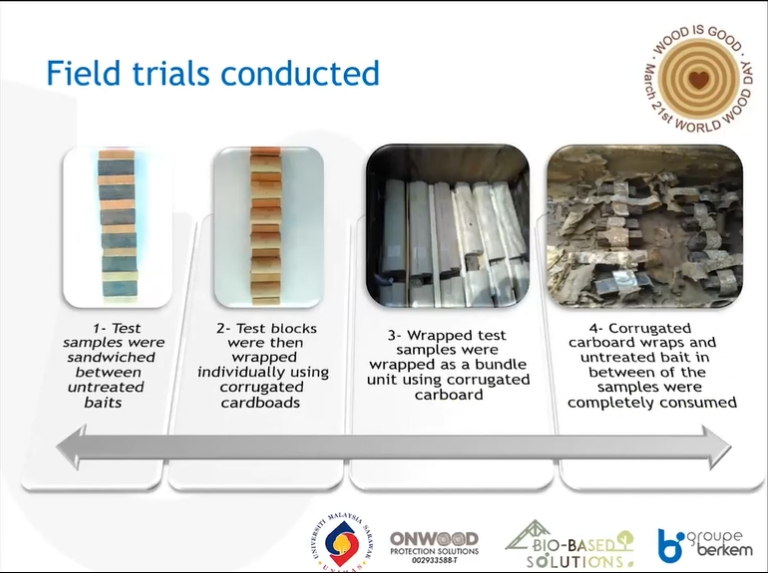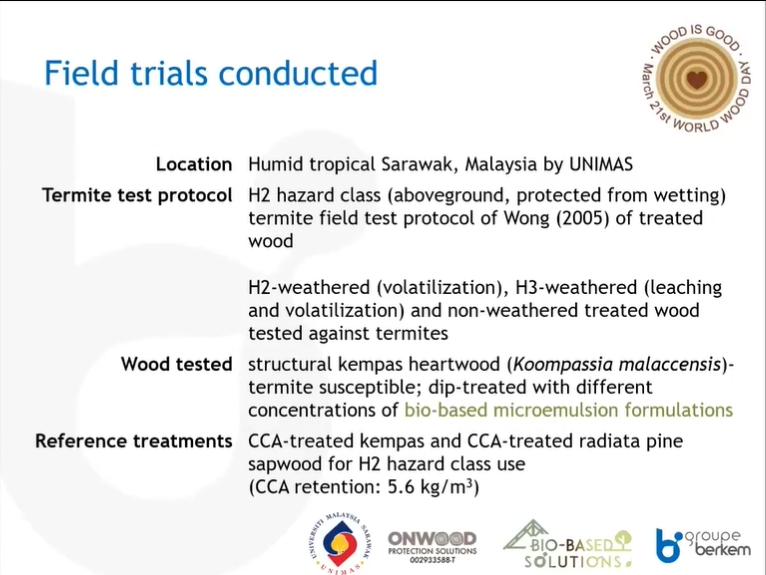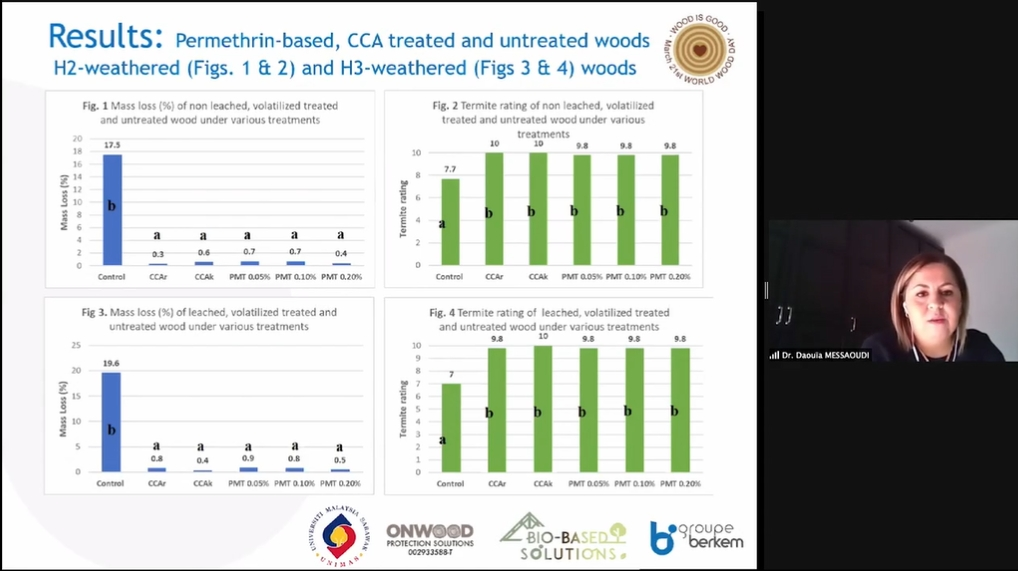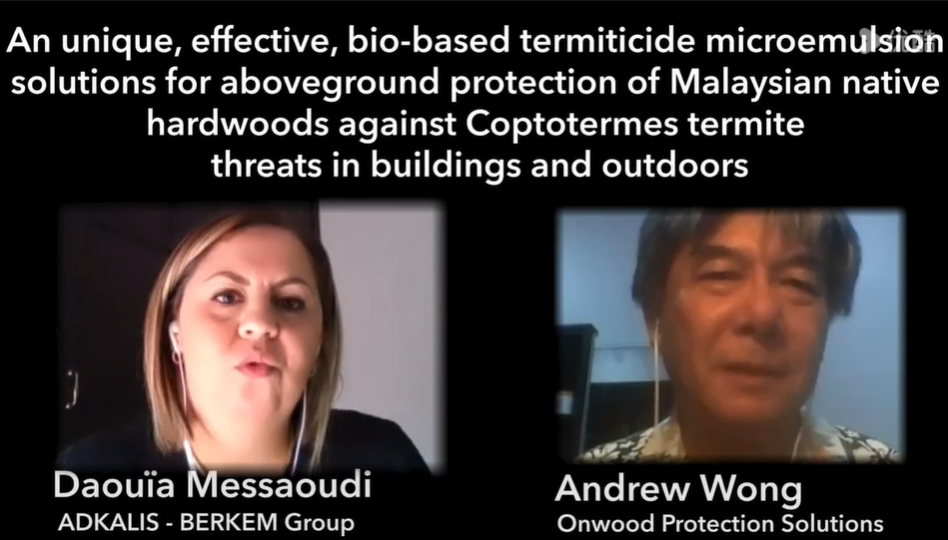会议名称:“2021世界木材日”研讨会暨第三届国际林联(IUFRO) 林产品文化研究组讨论会
会议时间:2021年3月21日
报告嘉宾:Daouïa Messaoudi, Andrew Wong
嘉宾简介:ADKALIS - BERKEM Group / Onwood Protection Solutions
摘要:
The bio-based termiticide solutions presented in this paper are water-based wood preservatives approved for dipping treatment providing 25 years of termite protection for solid wood and wood-based products in Europe and for more than 10 years in Indonesia. These bio-based solutions are patented formulations based on concentrated microemulsions (ME) diluted with water as a dipping treatment, but also for vacuum pressure treatment. Field trials conducted in Malaysia by UNIMAS confirmed the efficacy of such bio-based solutions at three product concentrations on short dip-treated kempas (Koompassia malaccensis) heartwood, a major hardwood species in the Malaysian wood construction market, against the Southeastern Asian subterranean termite Coptotermes curvignathus exposed to aboveground H2 (indoor, non-wetting conditions) hazard class targeting termites compared to CCA-treated kempas and radiata pine (Pinus radiata) sapwood. Prior to the H2 hazard class termite field test exposure, treated wood blocks were conditioned to either a non-leaching volatilization (H2 hazard class weathered wood blocks) or to a leaching followed by volatilization (H3 hazard class weathered blocks) as well as non-leaching/non-volatilization and leaching/non-volatilization reference treatments. After 6 months field exposure, untreated kempas was severely (termite ratings: 0, mean mass loss: 97.4%) or moderately attacked (mean ratings: 7.7, mean mass loss: 17.5%), while none of the leached-volatilized (H3 hazard class) or non-leached-volatilized (H2 hazard class) test blocks treated with those bio-based products at both target retentions were regarded as attacked (mean ratings: 9.7-10, negligible mean mass loss) regardless of biocide retention, leached or non-leached wood, volatilized or non-volatilized wood treatments. Excellent performance also prevailed with the remaining treatment combinations of treated wood. Due to their unique compositions, the bio-based termiticide solutions presented here showed excellent performance against Coptotermes curvignathus with a low biocide retention where conventional agro-insecticides do not work. In conclusion, these solutions are effective for long-term wood protection in buildings and aboveground outdoors against Southeast Asian Coptotermes subterranean termites.
责任编辑:iwcs25H


 823
823